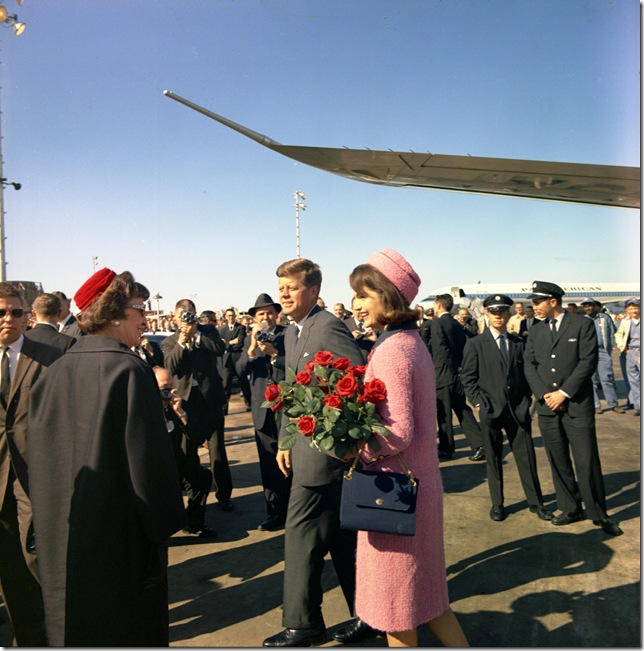By Myles Ludwig
The mist of history swirls still around the life and especially, the death of JFK. Fifty years later, that mist has not dissipated for those of us who were accidental eyewitnesses-once-removed; it refuses to leave. He is very much alive in our collective imagination.
He had been born a year before my father. My daughter, born a few days earlier than his death on that November day in Dallas, has only a historical memory of him.
This week, we mark Kennedy’s death with a kind of mournful vengeance. Not celebrate, but certainly, commemorate, as if, as Macbeth said, “nothing in life became him like the leaving of it.”
And still we cannot find its meaning.
I cannot think of another American president whose death we regard with so much reverence. We celebrate Lincoln’s life. We celebrate Washington’s life. We remember Lincoln’s death, but not Washington’s.
I remember the radio announcement of President Roosevelt death’s interrupting the party for my third birthday. His death cast a pall over my celebration. My parents suddenly wept. So did the mothers of the children who were guests. Everyone was sent home. I was confused and had no understanding of why that was. Had my birth caused that misery?
This week our media is focused on the circumstances of Kennedy’s death and the industry of doubt and disillusionment that has arisen as a consequence, but there is little focus on the consequences.
That deadly day in Dallas sent a spasm through my generation that endures to this day. That spasm writhed through the Sixties in which we sought an alternate form of consciousness. It sent us careening through Vietnam in which 50,000 of my contemporaries gave their lives for better trade relations. That spasm brought the Berlin Wall falling under the weight of its graffiti. That spasm resulted in communism not burying capitalism, but embracing it, albeit in culturally characteristic forms that remain committed to their totalitarian heritage.
That spasm peaked in the end of that decade with the deaths of RFK and MLK. These killings put paid to the illusions of my generation.
That spasm begun in Texas sputtered into a kind of in-the-wind decadence in the 1970s, twisted around on itself in the 1980s, lumbered through the 1990s and is baffling us now, we — and our children — who put our hope in a man who fumbles.
He had wit, humor and irony. There is a brutal irony in that his ghost haunted LBJ and brought down in disgrace Richard Nixon, the man he defeated in the 1960 election.
The chummy media gave Kennedy a pass. His foibles were rationalized as a kind of feckless existentialism, his reckless infidelities romanticized. He was not un-selfconscious when it came to personal style. He wore thermal underwear at his inauguration and chided his younger brother for wearing the button-down shirts he favored. Real men have straight collars.
Behind that charm was suffering. Kennedy was a man who lived in pain.
He tried to make the most of his mistakes. He was backed into a corner by the civil rights movement, by his father’s bootlegging background, by Hoover’s phone taps, by Castro, by Johnson’s politics, by the Diem coup apparently set in motion by his first opponent, then ambassador, Henry Cabot Lodge.
He believed in his fate. He believed his destiny was the presidency, much like Winston Churchill believed it was his destiny to lead England through World War II.
He didn’t wear a hat.
Myles Ludwig is a media savant living in Lake Worth.
